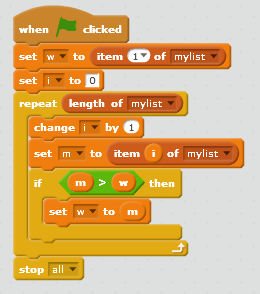24
2
Your challenge is to take an array of strings and output the longest string in the array. So for
["tiny", "small", "bigger", "biggest"]
the output would be biggest.
If two elements of the array have the same length, you should choose the one that appears first in the array. That means if the array looks like this:
["one", "two", "no"]
the output is one, but if the array looked like this:
["two", "one", "no"]
the output is two.
As this is code-golf, the shortest code in bytes wins.

3
2 notes:
– user202729 – 2017-12-20T10:54:16.4201It's heavily discouraged if the question is changed and invalidates existing answer, and2the Sandbox exists for exactly that reason (make sure challenges are good before posting)4Since I don't think anyone else has mentioned it -- Hi, and welcome to PPCG! – AdmBorkBork – 2017-12-20T14:21:19.217
Do you have any other test cases? Should we handle the case where the array is empty and, if so, how? – Luke Stevens – 2017-12-20T14:22:42.640
1No you don't have to handle the case where the array is empty. But if you want you can. – Doggo – 2017-12-20T14:25:51.163
42 hours? That's far, far too quick to be accepting an answer. – Shaggy – 2017-12-20T15:05:21.947
@Shaggy I un accepted the answer i will look into it tomorrow. – Doggo – 2017-12-20T16:29:12.830
6Normally you wait a week – Christopher – 2017-12-20T16:43:00.123
-1 because this is a fairly trivial challenge. – Esolanging Fruit – 2017-12-22T18:28:10.750